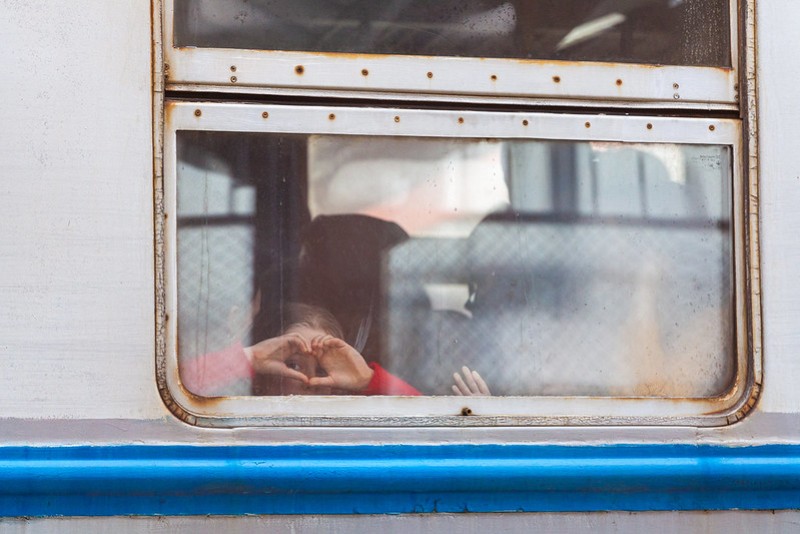HRL’s latest report published this week claims to have identified 43 sites holding Ukrainian children since Russia’s invasion of Ukraine on February 24, 2022, most of which are recreational camps where children are taken for ostensible vacations, while others are facilities used to house children placed for foster care or adoption in Russia, despite the fact that many of those children have parents back in Ukraine.
“What this report shows is clear, prima facie evidence of Geneva Convention violations by Russia and a violation of other elements of international law specific to child rights and to the treatment of children during armed conflict,” said Yale HRL Executive Director, Nathaniel Raymond.
The report says that at least 6,000 Ukrainian children aged four months to 17 years have started arriving in camps and other institutions in Russia in February 2022, and the most recent transfers took place this January.
“Among the camps, 12 are clustered around the Black Sea, seven are in occupied Crimea, and 10 are clustered around the cities of Moscow, Kazan, and Yekaterinburg. Eleven of the camps are located over 500 miles from Ukraine’s border with Russia, including two camps in Siberia and one in Russia’s Far East,” alleged the report.
Yale HRL also stated that it discovered two facilities involved in orphan deportation – a mental hospital and a family center.
The seemingly humanitarian motives conceal a horrific reality, since the major objective of the camps appears to be political re-education of needy Ukrainian children.
“At least 32 (78%) of the camps identified by Yale HRL appear engaged in systematic re-education efforts that expose children from Ukraine to Russia-centric academic, cultural, patriotic, and/or military education,” read the report.
It added that many camps supported by the Russian Federation are marketed as “integration programs,” with the obvious purpose of integrating Ukrainian youngsters into the Russian government’s idea of national culture, history, and society, some even in military training.
The HRL also alleged that all levels of authority were participating in the operation, which has been overseen by Russia’s federal government.
Officials reportedly involved in the operation’s activities include logistical coordination, such as transport of minors, finance raising, supply collection, direct camp management, and promotion of the initiative throughout Russia and occupied parts of Ukraine.
“Whether we are talking about the kids in re-education camps, or we’re talking about the quote, unquote evacuee children from Kharkiv, Kherson, and Zaporizhzhya, there is clear evidence presented in this report of alleged war crimes and potentially alleged crimes against humanity involving Russia’s activities with this – these thousands of children, likely significantly more than the 6,000 we identified, which represent not only a human rights crisis but also a child welfare emergency,” Raymond said.
The report claims that the majority of those children are not orphans, but that their parents have granted assent for their presence in the camps “under duress.”
“Consent gathered from parents for their child to attend a camp included signing over power of attorney in some cases, including to an unnamed agent,” according to the report.
Some parents reportedly claimed that certain components of their agreement, such as the length of stay and procedures for reconnecting with their children, were breached, while some refused to let their children go to the camps, but “were ignored by camp organizers who enrolled the children in camps regardless.”
According to the Yale HRL, many children’s returns from camps have been halted, and it is unclear how many of them have been reunited with their parents.
The report also cited parents as saying that they were unable to obtain information about their child’s status or location after their homecoming was halted.



